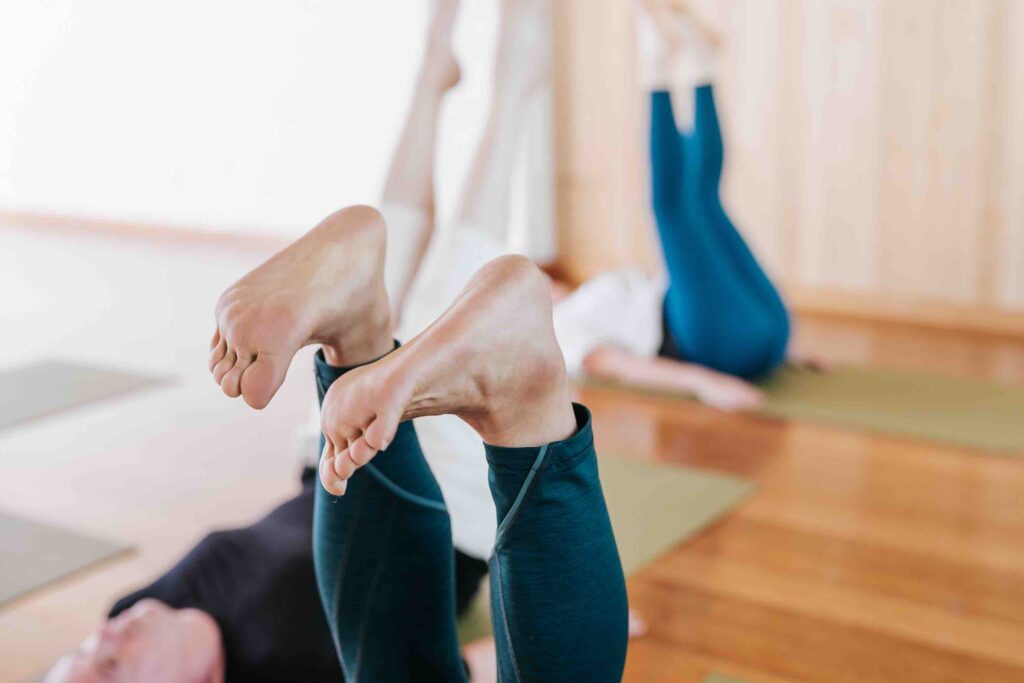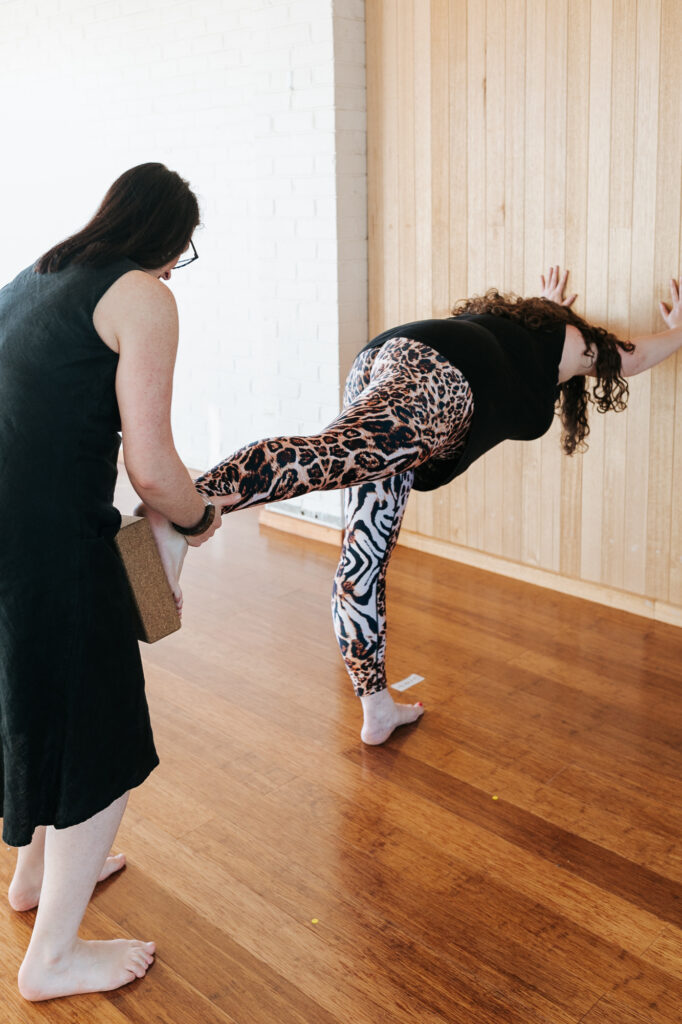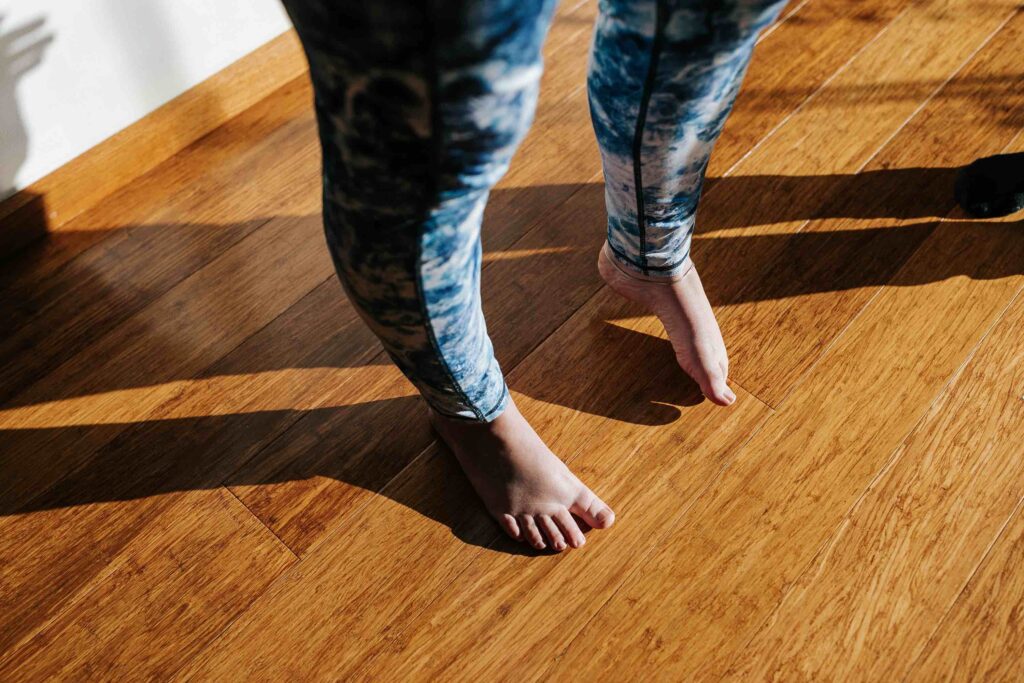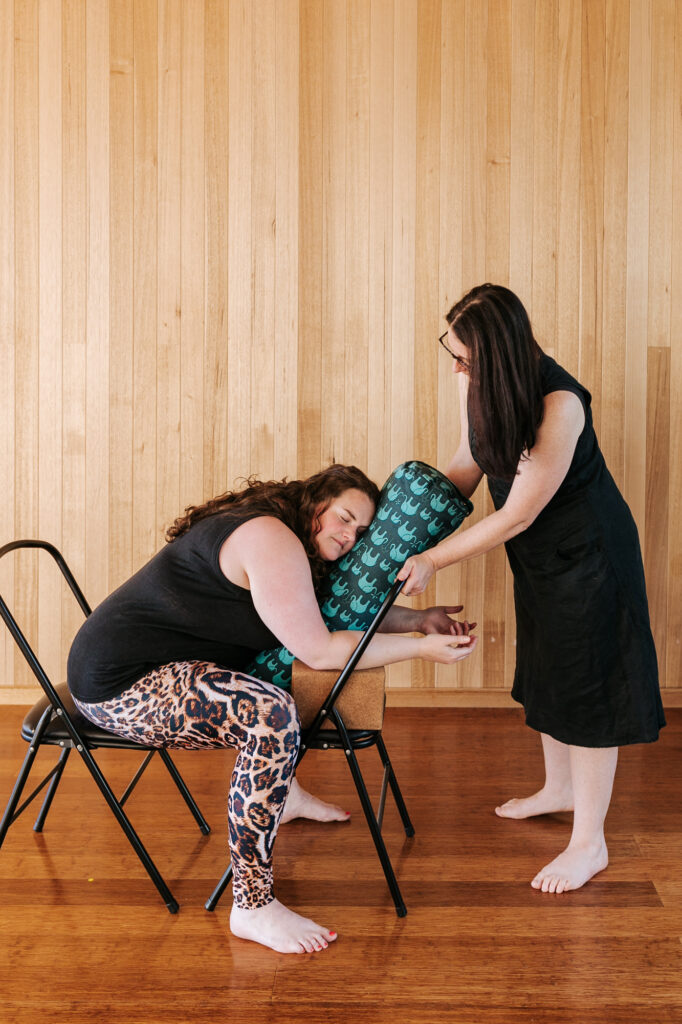Trauma Center Trauma Sensitive Yoga (TCTSY)
A Holistic Approach To Wellbeing
Trauma Center Trauma Sensitive Yoga (TCTSY)
Trauma is when you experience or witness an event that is deeply distressing and disturbing. This could be a physical, emotional, and psychological trauma. Often, when we experience trauma, we may experience alienation and disassociation from our body and, as an effect, may lose our capacity to be in the moment and experience the here and now. Often, our body can remain in a fight, flight, freeze, or fawn (appease) response long after we have left the traumatic experience or dangerous environment. TCTSY allows you to explore the connection with your body, move towards more safety within your body, and enables you to possibly explore self-regulation skills.
Trauma Center Trauma Sensitive Yoga (TCTSY) was developed at the Trauma Center in Brookline, Massachusetts (now the Center for Trauma and Embodiment) and is a yoga practice designed as a treatment for Post-Traumatic Stress Disorder (PTSD), more specifically Complex Trauma (C-PTSD). TCTSY recognises that trauma is both interpersonal and systemic. TCTSY is an evidence-based practice grounded in trauma theory, attachment theory, neuroscience and hatha yoga. This translates into each session through invitational language, choice-making, interoception, non-coercion, and shared authentic experience.
These sessions are designed to create a safer, supportive, and non-judgmental environment to enable clients to explore the connection between their body and breath through physical forms and movements, with the opportunity to build a positive relationship with their body. Unlike many general yoga sessions, no physical hands-on adjustments are offered, and the focus is more on the participants’ internal experience than the external form. TCTSY empowers participants to create choices for their own practice based on the felt sense of being in their body.
As stated on the TCTSY website. The TCTSY program is the first to qualify for inclusion in the National Registry of Evidence-based Programs and Practices (NREPP) database published by the Substance Abuse and Mental Health Services Administration (SAMHSA).
In 2021, Trauma Sensitive Yoga was further validated as an effective adjunct treatment for complex trauma and PTSD in a study involving women veterans and military sexual trauma-related PTSD.
Suitable for: all ages with no prior experience required. This practice is suitable for those living with Complex PTSD, childhood trauma, and developmental trauma.
Length: 45 minutes
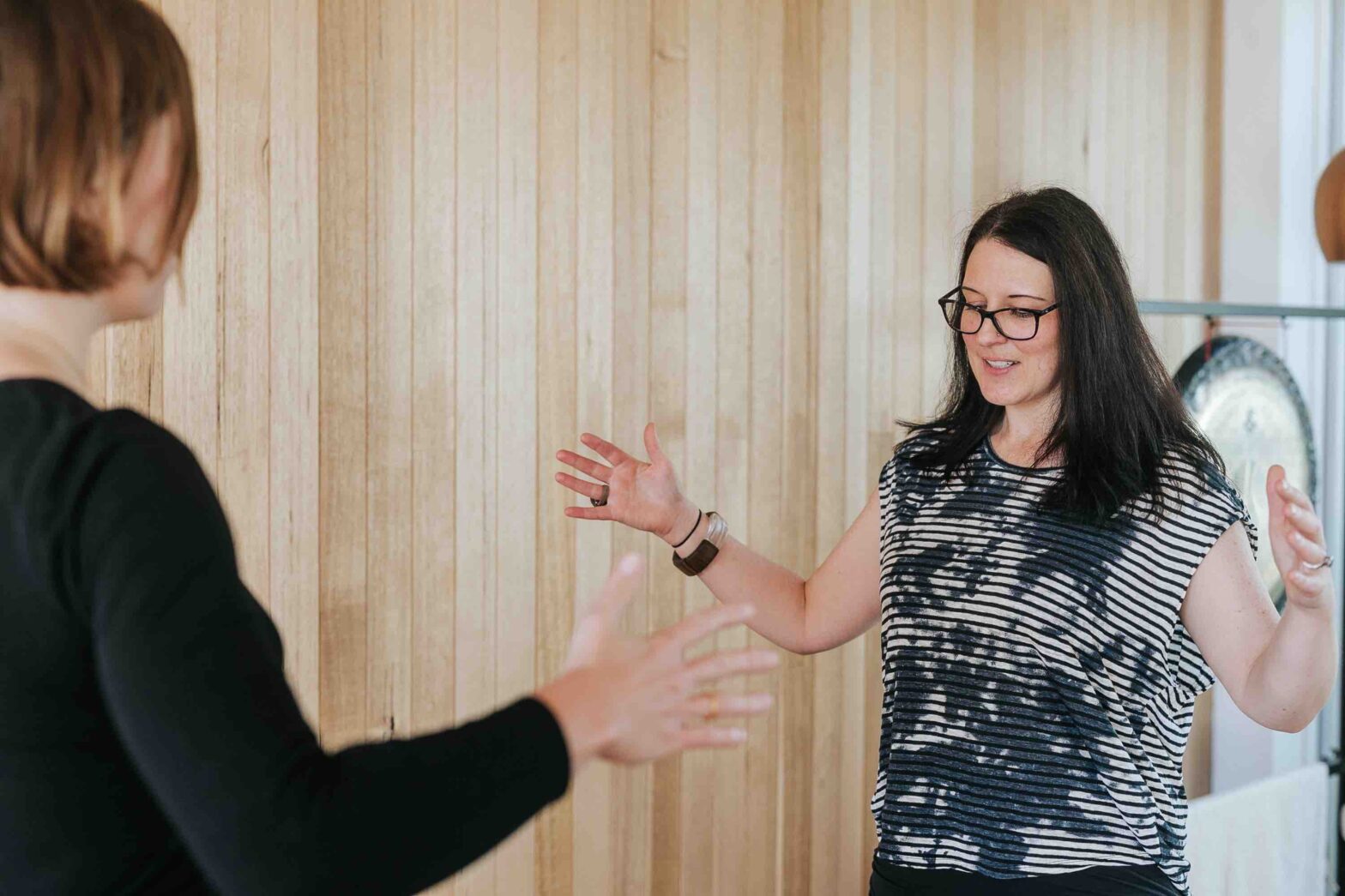
What to expect
You are welcome to engage with this practice in a way that is useful and meaningful to you. With your guidance, we may explore seated (either in a chair or on the ground), reclined or standing practices, and may include strengthening, stretching, and breathing. As a facilitator, I will also be practising with you. I won’t be moving around the room or offering any hands-on assistance; this way, you will always know where I am and can focus on your experience of being in your body.

“Movement is life. Life is a process. Improve the quality of the process and you improve the quality of life itself”
— Moshe Feldenkrais
Psychological benefits
Through movement, we can also access a range of psychological benefits, which include:
- Reaching a state of deep relaxation
- Self-regulation of the tension and tightness stored in the body
- Unlocking unconscious thought processes and embedded beliefs that may be holding you back
- Understanding your brain and body’s capacity for choice
- Reconnecting with your physical and emotional self to recover from persistent stressors and overcome trauma
Trauma and Movement Therapy
The body, like the mind, can retain traumatic past events. So when your body and muscles tighten in response to a traumatic event, even when the trauma is gone, the same messages are being sent back to the brain. This tension will remain until the resting position of the body and muscles are reset. We use Somatic exercises to further contract the muscles with little effort, to change the messages being sent to the Mortor Cortex of the brain. This then results in a change in the resting position of the muscles and enables the body to release stored tension and trauma and find a new freedom and way of being.
*This form of therapy, like any other, takes time and consistency to achieve desired results.
We are passionate about providing holistic services to our clients so that they can get the support and guidance they need to live their best life. Our Somatic and Dance Movement therapy can help support emotional regulation, deeper mind-to-body connection, connecting the right and left sides of the brain, nervous system regulation and sleep issues. We provide 1-1 sessions that are tailored to each client and work closely with the client’s lead Psychologist to achieve and accelerate therapy goals.
Our Movement & Yoga Therapy Sessions
Lilley Place is passionate about a collaborative approach; therefore, our movement therapists work closely with our psychologists to ensure each client gets the support and care they need to feel better. We can work with clients looking for a holistic therapeutic approach to wellbeing. Sessions run for 45 minutes and are currently running in a 1:1 setting.
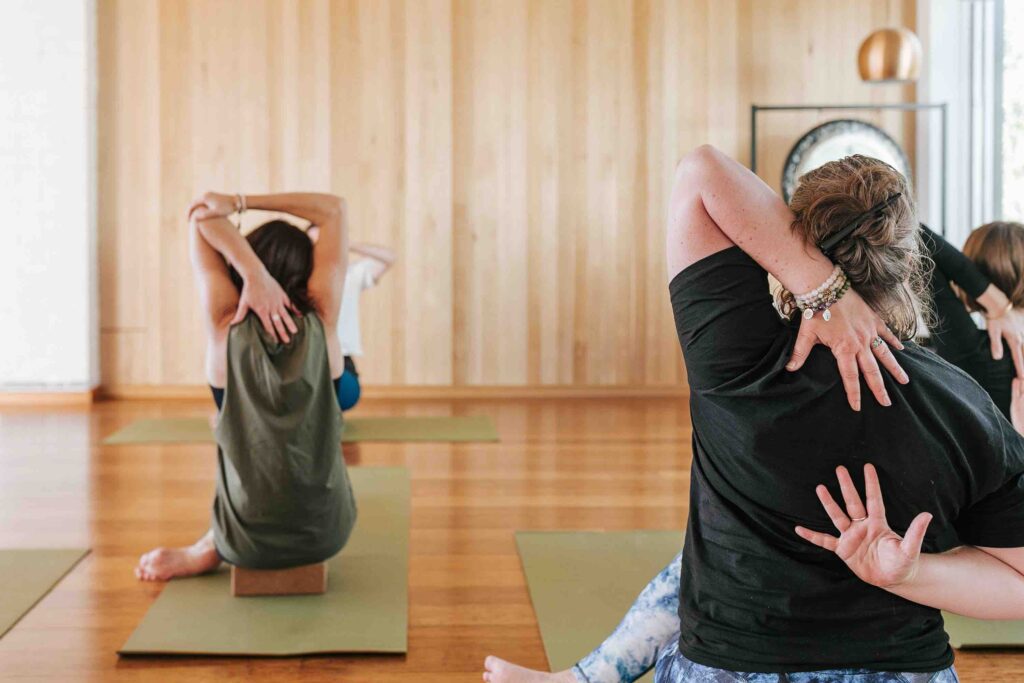
More Information
What can I expect in my first session?
The first session is about getting to know you, what your goals are and what your experience with movement has been. We help to orientate you with the space and your body so that you feel comfortable participating in sessions. In this first session, the therapist will also evaluate your physical ability so that future sessions can be designed to meet your needs. We will also practise some breathing exercises and simple movements in the body to give you an idea of what to expect in the ongoing sessions.
What do I wear to a movement therapy session?
Please wear comfortable clothing that you can easily move in. We encourage long pants/tights, and a t-shirt that doesn’t restrict your range of motion.
Do I need a referral to see a movement therapist?
No, you can book to see our Movement Therapist whenever you’re ready. Please note that we also support NDIS self managed participants.
Will there be tactile feedback throughout the session?
Within the context of Trauma Center Trauma Sensitive Yoga (TCTSY), the therapist is equipped with numerous skills and techniques that revolve around body movement and potential consequent tactile contact with clients. Movement and touch serve to assist clients in their psychological and emotional journey. The therapist always evaluates the appropriateness of the use of touch for each client. Whilst we believe there are many benefits to tactile feedback from the therapist, we do require written and verbal consent, so if we do not receive consent, the sessions will be run without physical touch between therapist and client.

